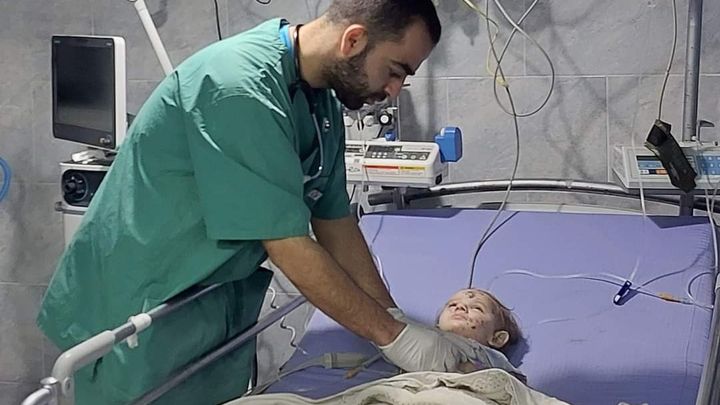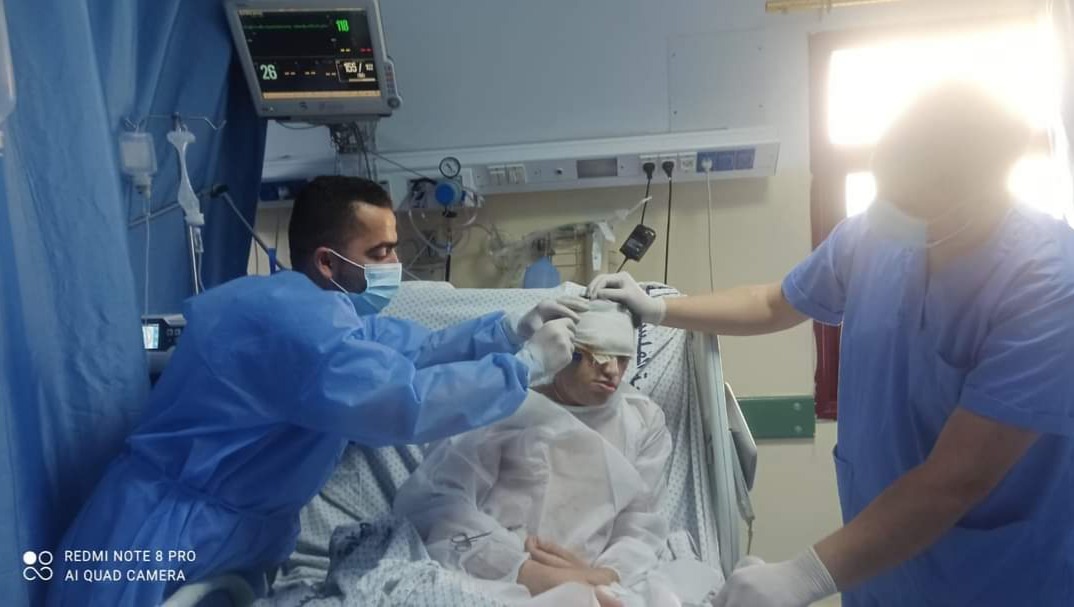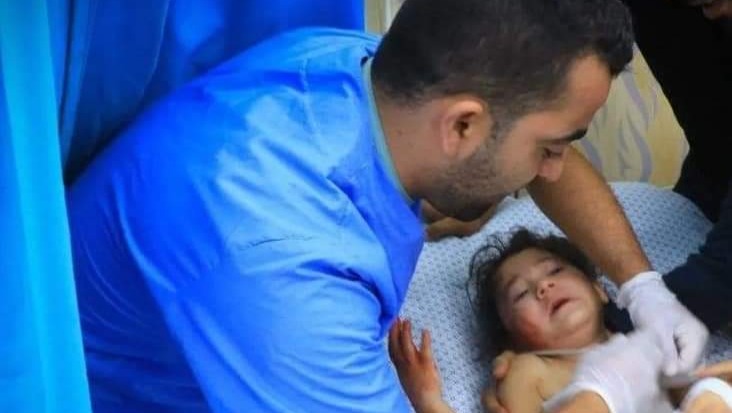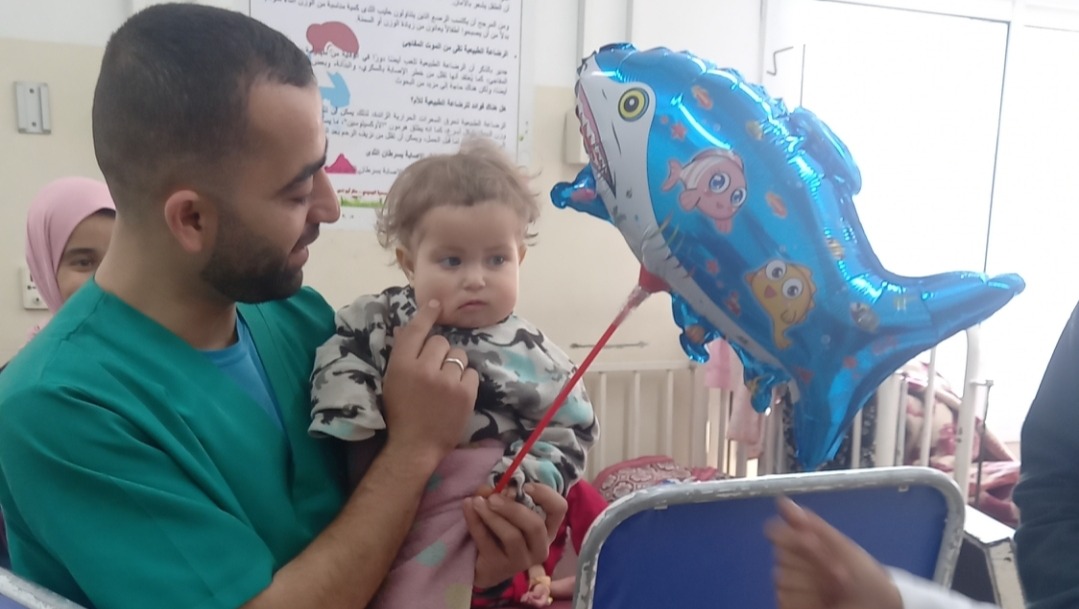
Help us and contribute so we can help the children of gaza
Donation protected

Hi . My name is mostafa naim . I am 29 years old and I work as an intensive care doctor in Gaza hospitals.
One day was enough for all of this. The day before October 7th was unlike any day after it, unfortunately. I am Dr. Mustafa Naeem from the northern Gaza Strip, which has been facing extermination since the beginning of the war and continues to this moment. I was working as an intensive care physician at the Indonesian Hospital in northern Gaza, and I had completed building my home, preparing for my wedding, which was supposed to take place on October 7th—the first day of this war that even the strongest nations cannot withstand. Since the beginning of the war, I continued to work as a doctor in northern Gaza. Days after the war started, my family and my fiancée’s family were forcibly displaced to the southern Gaza Strip after a series of massacres and extermination acts against the residents of northern Gaza. They were forced to evacuate to the south.
I refused to leave my job and evacuate, leaving patients and the wounded to die in hospital beds and on the streets. I wanted to support them and stand by the injured and the sick. After some time in this brutal war, I was informed that the dream house I built—the house I was planning to settle in—was destroyed. My siblings' homes, my relatives' homes, and most of the houses in my city were also destroyed. The sadness didn't stop there. After 44 days of working in the Indonesian Hospital in northern Gaza, the hospital was besieged by the army, and parts of it were bombed while we were inside. This led to the martyrdom and injury of many of my colleagues—fellow healthcare providers whose loss deeply pained me. Many of them were also captured and are still in prisons to this moment. Doctors, nurses, and healthcare providers are still in cells of torture and prisons, and this is extremely painful.
After the hospital was rendered inoperative and most of its contents were destroyed, we moved to work at Kamal Adwan Hospital. A week later, the same incident occurred; Kamal Adwan Hospital was stormed, and many of our colleagues were killed, injured, and captured. We were then forced to work at a small medical center called Beit Al-Kheir Medical Center in Jabalia. This center became the only remaining point of healthcare for all the residents of Gaza City and northern Gaza after the destruction of Shifa Hospital, the Indonesian Hospital, Kamal Adwan Hospital, the Baptist Hospital, and the rest of the healthcare facilities, all of which were rendered out of service. Our number was very small, not exceeding 20 healthcare providers, including doctors and nurses. We were making extraordinary efforts, far exceeding our physical and clinical capacity by hundreds of times.
After 55 days of hard and exhausting work, receiving hundreds of martyrs and thousands of injuries daily, the army advanced towards this medical center and bombed it while we were inside working. I was injured in multiple places due to the attack. Many workers were martyred, others were injured, and we were besieged inside. The center was then destroyed, and we miraculously survived. We returned to work at Kamal Adwan Hospital, where I was in charge of supervising the medical teams in the emergency and surgery departments.

Since the beginning of the war, I have been away from my family and fiancée, with only minimal news about them. Fear, anxiety, and the pain of loss have consumed my heart and soul every hour of every day. The memories of my friends who were often by my side, celebrating our joys together, and who have now been martyred, never leave me. The sorrow of my destroyed home, for which I had spent everything I saved since the start of my career and had taken out a bank loan that would take me seven years to repay—of which I had only managed to repay a small portion—still weighs heavily on me. The debts are piling up, and my home is completely destroyed. It's incredibly sad how your life can be turned upside down in a single day—going from a groom at the beginning of his happy and peaceful life to a lonely, sad, displaced, and grieving refugee within his own country. This is very, very sad.

---
Organizer and beneficiary
Mostafa Naim
Organizer
Aalst, VLG
Abedelhdy Abedelhdy
Beneficiary